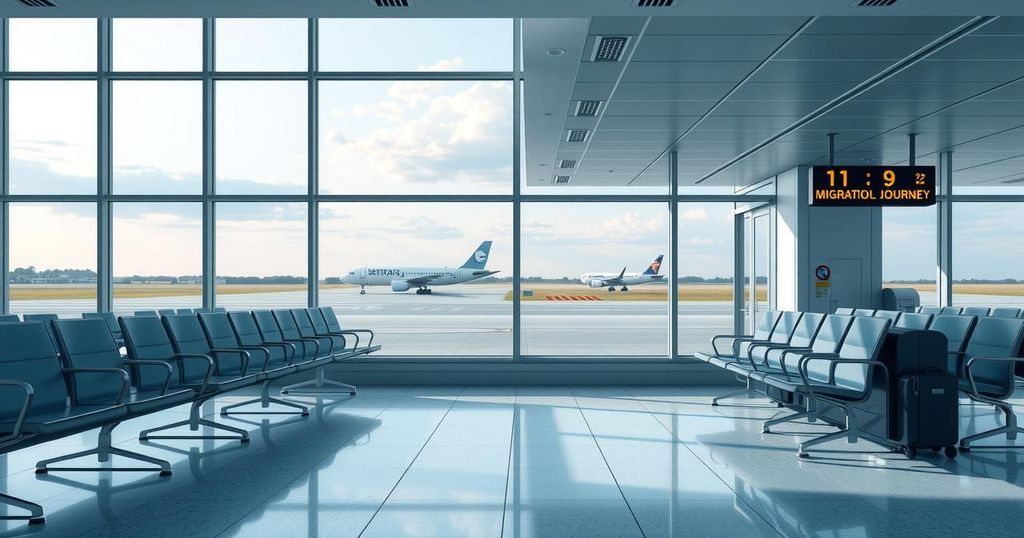Trump Administration Launches First Self-Deportation Flight Sending 68 Migrants Home

The Trump administration conducted its first voluntary deportation flight, sending 68 migrants back to Honduras and Colombia. This initiative includes financial support and aims to attract individuals considering return to their home countries. Experts are skeptical about the program’s demand among migrants, amid ongoing difficulties for undocumented individuals in the U.S.
In a notable move, the Trump administration has executed its first voluntary repatriation flight, sending 68 immigrants back to their home countries of Honduras and Colombia. This operation, which took place on Monday, was financially supported by the government and offered these individuals the option to self-deport. The flight primarily transported 38 Hondurans, including 19 children, to San Pedro Sula, where they were provided with $1,000 debit cards and the potential for future legal entry into the United States.
President Trump, during his campaign, pledged to initiate “mass deportations” if elected again. However, experts seem skeptical about the uptake of this self-deportation offer, predicting that it might appeal to a limited number of migrants who were already contemplating a return home. It appears more of a measure amid ongoing high-profile detentions in the U.S. rather than a widely sought-after option.
Kevin Antonio Posadas, who lived in Houston for three years, was one of the returnees. He expressed a desire to reconnect with family, remarking, “I wanted to see my family and my mom.” He found the self-deportation process to be straightforward, explaining that after applying through the CBP Home app, he received confirmation just three days later. Posadas noted the benefit of not needing to pay for a flight, stating, “It’s good because you save the cost of the flight if you have the intention of leaving.” While not anxious about deportation, he acknowledged the increasing challenges of being undocumented in the U.S.
Homeland Security Secretary Kristi Noem emphasized the importance of utilizing the CBP Home App, stating, “If you are here illegally, use the CBP Home App to take control of your departure and receive financial support to return home.” She further warned that failing to opt for this program could lead to arrest, fines, or deportation, barring future reentry into the country.
The Department of Homeland Security (DHS) indicated that the remaining 26 migrants on the flight were bound for Colombia. Among the returning Hondurans, Deputy Foreign Minister Antonio Garcia reported that each individual would receive $100 in cash, plus $200 worth of credit at local government shops. He shared that four of the children onboard were actually born in the United States.
At the airport, Garcia listened to the migrants’ accounts, who conveyed that their status in the U.S. had become increasingly difficult and hostile, causing them distress about employment and living conditions. Wilson Paz, Honduras’ immigration director, noted a decline in returns compared to last year, stating only 13,500 had been deported this year, a drop from over 15,000 the year before.
Paz remarked, “I don’t think it will be thousands of people who apply for the program. Our responsibility is that they come in an orderly fashion, and we support them.” The comments reflect a cautious outlook on the program’s attractiveness to displaced migrants, even as the U.S. administration pivots its approach toward immigration issues.
In summary, the Trump administration’s self-deportation flight marks a significant, albeit tentative, shift in immigration policy. While it provides financial incentives for returnees, experts predict a limited response from migrants. With ongoing challenges faced by undocumented individuals in the U.S., many are reconsidering their options. Overall, the effectiveness and demand for this repatriation strategy remain to be seen as the administration continues to navigate complex immigration dynamics.
Original Source: www.independent.co.uk








